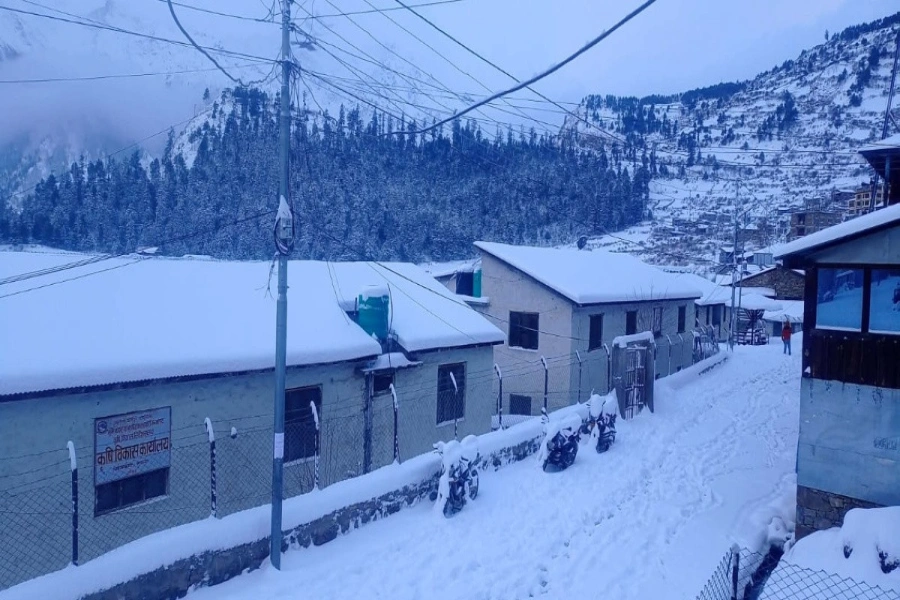The two countries sign nine agreements during official visit of PM Oli to China
KATHMANDU, Dec 4: Nepal and China have failed to make a breakthrough on projects related to Belt and Road Initiative (BRI) amid differing positions between ruling parties on the BRI projects funded with loans.
Government officials accompanying Prime Minister K P Sharma Oli during his ongoing visit to China have said the possibility of making a breakthrough in the BRI related agreements during this visit is less likely as Prime Minister Oli has already concluded formal meetings with his counterpart Li Keqiang and President Xi Jinping.
At the heart of the failure to reach the breakthrough is Nepal’s demand that the BRI projects should be funded through Chinese grants. The Nepali side has asked for further discussions with the Chinese side to find a middle ground.
In Favor of Breakthrough Agreement on BRI

The ruling parties—Nepali Congress and CPN-UML—had earlier forged an agreement that the government would not implement BRI projects under loan at least for now, given that the country’s economy is in a bad shape to implement big projects under loan. The two parties reached consensus on the issue after a week-long discussions, even as the UML pushed for implementing a few BRI projects under loan.
The Nepali side had subsequently shared a draft of Framework Agreement on BRI Cooperation for the consideration of the Chinese side. But as there was some reservation from the Chinese side, the two countries are set to hold further discussions on the draft Framework on BRI Cooperation.
One of the terms that the Chinese side has expressed reservation in the draft Framework is the use of the words ‘grant financing’ –something the Chinese side has proposed using ‘financing’. “Although there are no fundamental differences between the two countries in the contents of the Cooperation Framework agreement, the Chinese side has expressed reservation over the proposal of the Nepali side to finance BRI projects only through grants,” said a senior government official familiar with the development.
The government had prepared a list of frameworks and projects to be funded only through grants amid the decision of the NC not to implement BRI projects funded by loans. The draft cooperation framework on BRI and projects under it could not be signed during the PM’s visit as the Chinese side conveyed its reservation over some of its provisions.
Foreign Minister Arzu Rana Deuba met with representatives of the Chinese Foreign Ministry after the MoUs on BRI related projects could not be signed during the meeting between Prime Minister KP Sharma Oli and Chinese Premier Li Keqiang on Tuesday.
Although there was no breakthrough in the BRI related agreement, the two countries signed nine different agreements during Prime Minister Oli’s official visit to China. The deals include Agreement on Economic and Technical Cooperation, Letters of Exchange on Tokha-Chhahare Tunnel, MoU on Trade Promotion Cooperation and Protocol on Requirements of Thermally Processed Buffalo Meat Products to be Exported from Nepal to China.
The MoU on Development Plan (2024-2029), Letter of Exchange on Cash Assistance, Handover Certificate of the Completion of the Reconstruction of Nine-Storey Basantapur Tower, MoU on Volunteer Chinese Language Teachers and MoU Between Public Service Broadcasting Nepal Television and China Media Group are also among the deals reached between the two countries during PM Oli’s official visit.
Prime Minister Oli left for Beijing on Monday for a four-day official visit. He concluded all the high-level meetings on Tuesday. A reception program to be hosted by the Embassy of Nepal in Beijing and an address at Peking University are scheduled for Wednesday. Prime Minister Oli is returning to Kathmandu on Thursday afternoon.







































